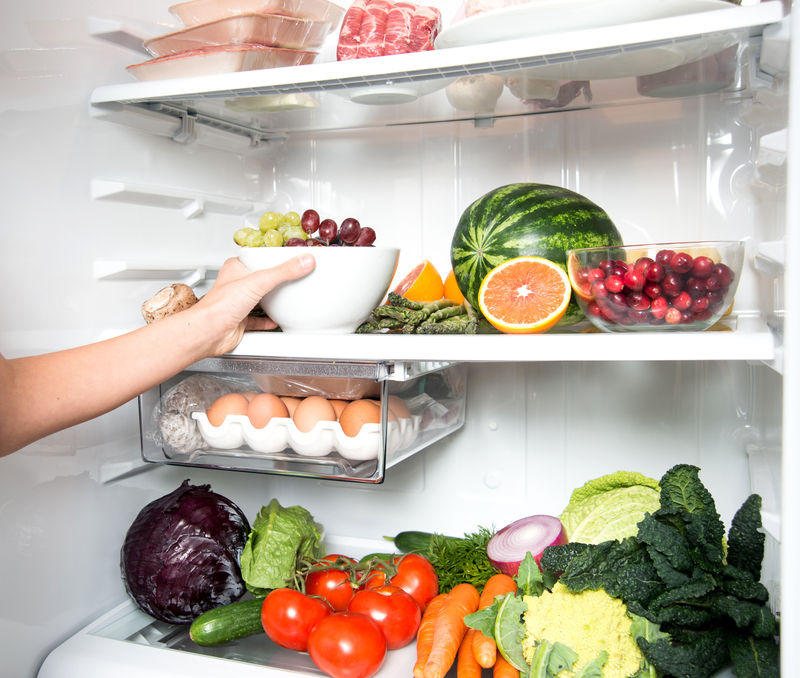Preserving Your Freezer's Condition Through Proper Storage
The freezer is an indispensable kitchen appliance that ensures household convenience, food security, and waste reduction. However, sustaining the optimal condition of your freezer requires more than just setting the right temperature--it demands strategic storage, consistent cleaning, and mindful management of its contents. In this comprehensive guide, we'll explore everything you need to know about preserving your freezer's condition through proper storage. Whether you're a first-time homeowner or a seasoned chef, these freezer maintenance strategies will help keep your appliance running smoothly and your food safe for longer.
Understanding the Importance of Proper Freezer Storage
Efficient freezer storage isn't just about organization--it directly impacts food preservation, energy efficiency, and the longevity of your freezer. When food is stored improperly, it can lead to:
- Freezer burn and spoiled food
- Excess ice buildup and frosty interiors
- Overloading, which hinders air circulation
- Increased electric consumption
- Compressor strain and reduced freezer lifespan
By focusing on proper freezer storage techniques, you'll extend the life of your appliance, protect your food investment, and foster a more sustainable household.

Best Practices for Freezer Maintenance and Storage
1. Temperature Is Key: Maintain the Ideal Setting
The most fundamental factor in preserving your freezer's condition is maintaining a consistent internal temperature. Experts recommend setting your freezer at 0?F (-18?C) or lower. This ensures food stays safely frozen, microorganisms are inhibited, and foodborne illnesses are minimized.
Tips for Stable Freezer Temperature:
- Check the temperature with an appliance thermometer monthly.
- Never overload the freezer, as cramped conditions prevent air from circulating.
- Open the door minimally to prevent warm air from entering.
2. Organize for Performance and Efficiency
Cluttered freezers aren't just hard to navigate--they can undermine the appliance's efficiency. A well-organized freezer encourages cold air to flow freely, preserving food quality and minimizing hotspots that can lead to thawing or ice buildup.
Smart Freezer Organization Tips:- Use clear, labeled containers: Group like foods together--vegetables, meats, baked goods, and prepared meals--and label with dates for easy tracking.
- Implement the "First In, First Out" (FIFO) method: Always use older items before newer ones to minimize waste and avoid forgotten, expired food.
- Keep frequently used items in easy reach: Reduce the time spent with the freezer door open and make meal prep faster.
- Don't overcrowd: Leave space for cold air circulation, which maintains a steady temperature throughout the cavity.
A freezer that's about 75-85% full runs most efficiently, allowing for proper airflow but still enough cold mass to maintain temperature during brief power outages.
3. Packaging Matters: Protect Against Freezer Burn
Poor packaging is one of the main culprits behind freezer burn--that unappetizing layer of dehydration and oxidation that affects flavor, texture, and nutritional value. The key to preserving your freezer's contents is tightly wrapping food in moisture-proof, airtight packaging.
Best Practices for Freezer-Ready Foods:- Choose Freezer-Safe Materials: Use thick plastic freezer bags, heavy-duty aluminum foil, or airtight containers specifically designed for freezing.
- Remove Excess Air: Squeeze bags flat and press out air before sealing, or use a vacuum sealer for long-term storage.
- Double-wrap where needed: Particularly for items prone to freezer burn (like bread or meat), an extra layer offers additional protection.
- Label everything: Clearly mark the contents and date of freezing with a waterproof marker.
4. Store Foods Correctly: What Belongs Where?
To further preserve your freezer's condition, store foods strategically:
- Keep raw meats on the bottom: This prevents drips from contaminating other foods if packaging fails or thaws.
- Group by category: Dedicate specific shelves or baskets to vegetables, baked goods, dairy, and prepared meals.
- Freeze in portions: Consider freezing foods in meal-sized or single-use portions for convenience and to minimize unnecessary thawing and refreezing.
5. Keep It Clean: Regular Maintenance and Defrosting
A clean freezer isn't just a matter of hygiene--it plays a crucial role in appliance efficiency and food safety. Over time, frost and ice can build up inside, limiting space and interfering with temperature regulation.
Tips for Freezer Upkeep:- Check for ice buildup: If more than a quarter-inch of frost accumulates, it's time to defrost. Most modern freezers are frost-free, but chest or older models may require manual defrosting.
- Conduct monthly wipe-downs: Remove contents, unplug the unit, and wipe interiors with a mild baking soda solution to neutralize odors and bacteria.
- Inspect and replace seals: Test the freezer gasket regularly. A loose or cracked seal can allow cold air to escape and drive up your energy bill.
Common Mistakes That Shorten Freezer Lifespan
To truly preserve your freezer's performance and condition, steer clear of these frequent pitfalls:
- Overpacking: Crowding with too many items impedes airflow and causes uneven freezing.
- Ignoring temperature warnings: Frequent temperature fluctuations can stress the compressor and degrade food quality.
- Allowing spills to linger: Food residues can freeze onto interior surfaces, leading to odors and potential bacterial growth.
- Forgetting routine maintenance: Skipping inspections and defrosting can accelerate appliance wear.
- Using inappropriate containers: Thin plastics can crack, and non-freezer-safe materials may leach chemicals or spoil contents.
Additional Tips for Long-Term Freezer Storage
For those looking to maximize both appliance lifespan and food integrity, consider these advanced strategies for freezer storage and maintenance:
1. Flash Freezing for Quality Preservation
When storing items prone to sticking together (such as berries, meats, or baked goods), use the flash freezing technique:
- Spread items in a single layer on a baking sheet.
- Freeze for 1-2 hours until solid.
- Transfer to airtight containers or freezer bags for longer storage.
This method preserves shape, texture, and makes it easier to portion food later.
2. Rotate and Audit Regularly
A monthly inventory helps you track what's inside, avoid waste, and maintain order. Make it a habit to:
- Discard items past their safe freezing window (consult USDA guidelines).
- Rotate foods (older in front, new in back) to enforce FIFO usage.
- Ensure organization systems remain effective.
3. Prepare for Power Outages
If the power goes out, keep the freezer door closed. A full freezer holds temperature for about 48 hours (24 if half full). Consider storing a couple of large ice blocks for emergencies--they help stabilize internal temperatures and keep foods safe longer.
Energy Efficiency and Freezer Longevity
Efficient freezer operation saves you money and extends the appliance's lifespan. Here's how to maximize both:
- Don't locate your freezer in hot spots: Avoid placing the appliance near stoves, ovens, or in direct sunlight.
- Ensure proper ventilation: Maintain several inches of space around the unit's exterior for adequate airflow.
- Defrost periodically: Even frost-free models benefit from occasional ice removal and a deep clean.
- Replace old units: If your freezer is over 15 years old, consider switching to a more energy-efficient model.

Frequently Asked Questions on Freezer Storage and Maintenance
How often should I clean my freezer?
A quarterly deep clean is ideal, with quick wipe-downs as needed. If you notice spills, leaks, or odors, address them immediately to prevent buildup and contamination.
What should I avoid freezing?
Some items, like high-water-content vegetables (lettuce, cucumbers), cream-based sauces, and certain dairy products, don't freeze well and may suffer textural changes. Always research freezing suitability before storing unfamiliar foods.
How can I reduce freezer odor?
Keep an open box of baking soda inside the freezer to absorb odors. Regular cleaning and prompt attention to spills also keep smells at bay.
Should I line my freezer shelves?
It's best not to use shelf liners that impede air circulation. Only use "freezer liners" designed to allow for cold air movement.
Conclusion: Keeping Your Freezer in Peak Condition
A well-maintained freezer is a silent but invaluable asset in every home. By preserving your freezer's condition through proper storage, you ensure food safety, reduce energy costs, and prevent expensive repairs or premature replacement. Practicing smart organization, using appropriate packaging, maintaining a steady temperature, and cleaning regularly are the cornerstones of good freezer stewardship.
Ultimately, the little extra effort you put into freezer organization and maintenance pays off significantly in both the quality of your meals and the durability of one of your hardest-working home appliances. Make proper freezer care a habit, and you'll enjoy reliable, efficient, and long-lasting freezing power for years to come.
Ready for a cleaner, more organized freezer? Start implementing these tips today and experience the difference in freshness, savings, and peace of mind!



